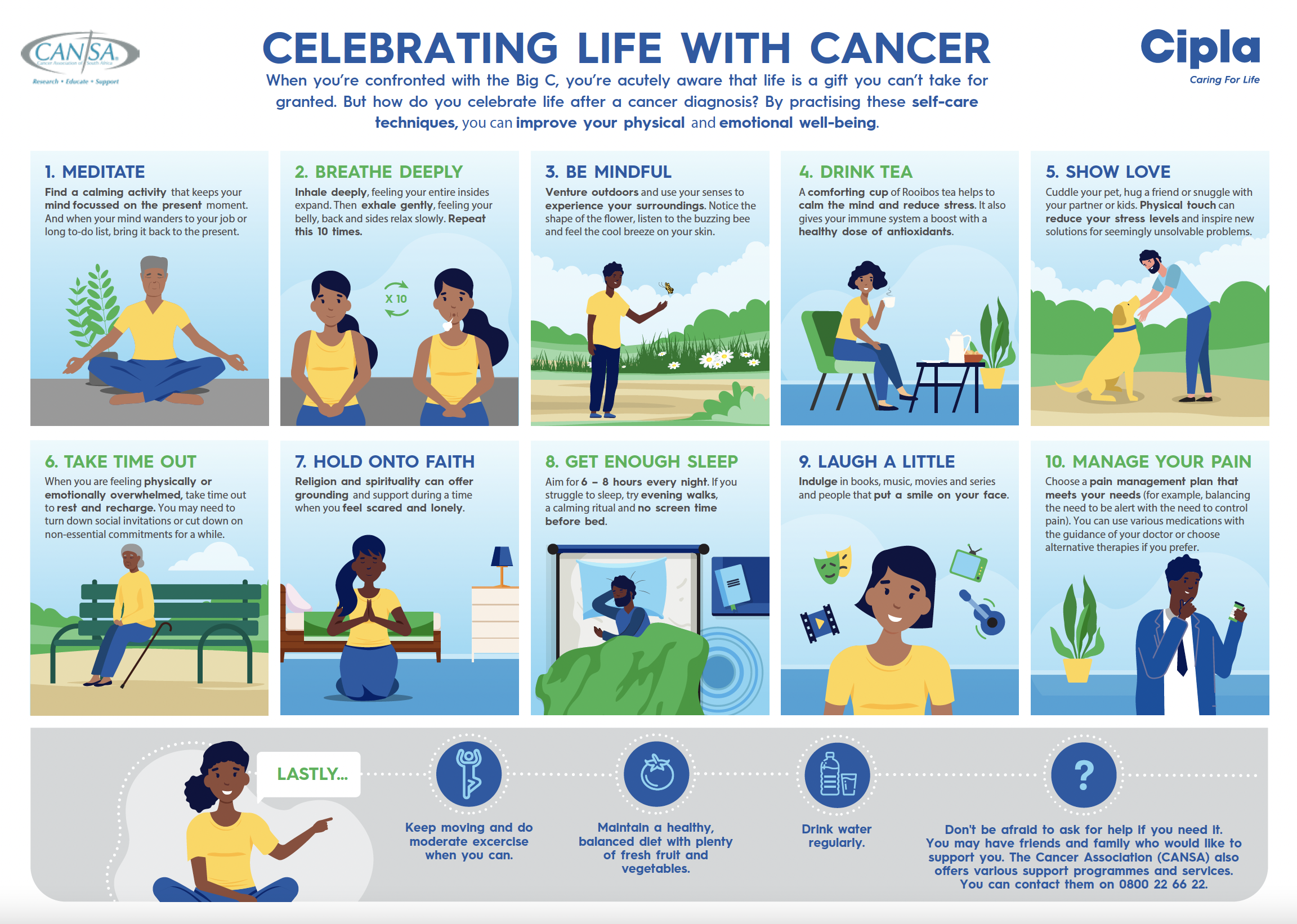Self-care during cancer
When you hear the words self-care, you may think they’re just buzzwords, but if you’re a cancer patient they take on a far more important meaning. They mean doing what makes you feel good and takes your mind off your illness and treatment. [1]
The cancer is primarily beyond your control and in the hands of your medical team, but you can learn to listen to your needs and even build resilience. Research has shown that where patients practice self-care they can significantly reduce their stress, lack of sleep and anxiety. [2] It can also help cope with the overload of emotions and help build focus. [1]
Self-care tips:
- Download a meditation/mindfulness app (such as Headspace or Calm)
- Go for regular massages
- Check out what works for your cancer
- Try some light exercise (check with your doctor first)
- See friends and family
- Make sleep a top priority
“We now know more than ever that life is about balance and the whole package,” explains renowned breast cancer specialist Prof Carol-Anne Benn. “If I was to start somewhere as a cancer patient it would be with my diet. There are continual studies around beneficial foods that contain the right vitamins to assist with cancer treatment.” It could also be useful to engage in other self-care activities such as spa days, yoga, writing in a journal, doing hobbies or crafts that you enjoy. It’s also recommended to join a support group.
Small steps in the right direction
“It’s not always easy for a cancer patient who’s feeling extremely low to exercise, so it’s important to remember it’s one step at a time,” says Benn. “There’s no such thing as failing as long as we keep trying. If you can’t run then walk. If you can’t manage an hour, do 30 minutes. The important part here is always to do something. Put your mind in control of your body and build that habit."
This was exactly the scenario for Anneke whose breast cancer had rapidly metastasised throughout her body. “I didn’t walk for a year. Each day my daughters would ask if I’d stood up. I managed 12 seconds before sitting down exhausted. I made every excuse. My husband gradually made me walk a little more each day and I realised I just had to get my head around my perceived weakness and get fit again.”
As Prof Benn points out, “The most important comment I have is that self-care starts with self-love.
References:
- Hurley-Browning, L. Self care during cancer. Penn Medicine. Accessed online: https://www.pennmedicine.org/cancer/about/focus-on-cancer/2018/october/self-care-during-cancer#:~:text=Simple%20Self%2DCare%20for%20People%20with%20Cancer&text=Make%20time%20for%20things%20that,Eat%20nourishing%20foods
- Sivakumar, V and Susila, C. Effectiveness of Self-care Measures on Knowledge, Self-efficacy and Performance Status among Cancer Patients. NCBI. Accessed online: https://www.ncbi.nlm.nih.gov/pmc/articles/PMC8008230/
